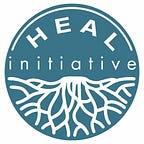Providers with Purpose: Zena Salim, MD
Q&A with Dr. Zena Salim, 2021–2023 HEAL Fellow on what ignited her passion in medicine and advocacy.
Dr. Zena Salim is a 2021–2023 HEAL Rotating Fellow originally from Kenya and currently located in Oakland, California where she works at Kaiser Permanente.
Why is health equity so important to you?
I’m from Kenya, and so that played a huge role into my passion for health equity. My extended family is still in Kenya and growing up we had a pretty close relationship. Once I got to high school, I started to experience a lot of death and loss in my family of people that I really loved. It was always due to lack of health equity in a way that didn’t exist here in the US.
I always felt that if they were only here in the US, then they would probably still be here today. Even though I can’t fix that or bring them back, I can definitely dedicate my career to preventing other people from facing health inequities or at least decreasing the gap. So that’s been a very strong passion of mine. It’s what brought me to medicine and that’s what brought me to the fellowship too.
Have you done any work in Kenya or elsewhere outside of the United States in health equity leading up to this moment in your career?
After high school through college, I spent a lot of time in a refugee camp in Kenya called it’s a United Nations refugee camp in Dadaab. So it’s close to the Somalia border. There’s a lot of Somalis and a lot of Sudanese who go there. And that also really opened my eyes to the different disparities of refugee health and that whole territory. Throughout my medical training, I’ve done research in Ethiopia where we looked at disparities in cancer care. Most recently, I spent some time working with Safari doctors, who set up mobile clinics on small islands off the coast of Kenya that don’t really have any doctor or anyone there to get health care.
How do you feel as a doctor, when you meet and treat patients who are structurally denied access to proper nutrition or are denied clean water?
I try to get out of that mindset that I’m just a doctor. I think I can be an advocate. Especially in internal medicine, we are social workers, sometimes we’re family therapists. It’s hard to see a patient who’s gone through so much life trauma and then try to fix that, but I think what you can do is acknowledge it and then be their advocate. I think it’s important for doctors to continue to advocate because we do have an important voice in health and I think every aspect of our voice is important.
Why do you feel HEAL was a good step for you in this stage of your career?
I think HEAL is a good step for me because I want to dedicate my career to focusing on health care disparities in a way that is not harmful to the communities that I’m working in. I think that HEAL does it in such a very intricate, beautiful way. So I really hope that by participating in HEAL and joining forces, I’ll be able to learn about healthcare systems in low resource settings. I think I’ll get more experience working in different communities. I think, a great way for me to spend some time in my career dedicating time focused energy to that.
COVID has brought health inequities across the world to the front and center. What have you learned during the COVID pandemic?
During COVID, I have learned that what we thought we knew about health care disparities was a big understatement. I work at Kaiser, which is considered a very well resourced hospital. When we are stretched thin, I think it is very easy for us to be in the same situations as low resource or developing countries. In a way it was eye opening for me to see. I think COVID leveled the playing field in some ways in that everyone was facing the same issues. And it didn’t matter how well resourced you were, you still were scrambling to figure out how are we going to get ventilators and how are we going to triage, how are we going to prioritize which patients get these limited resources. It has forever changed how I will practice medicine and it’s been quite the experience.
Where do you see yourself five years from now or 10 years from now?
In my future, I hope to be working on implementing health care systems in low resource settings. My interest and experience has been in Kenya and so for me, that’s where my focus has been. I’m also curious how how to do that in other places. I would love to create something that can be implemented in places that don’t have an integrated health care system.
Follow our Medium Publication “Voices From the Frontline” to hear more from our community of over 180 global health fellows.
Subscribe to the HEAL Initiative Newsletter and stay up to date with our fellowship program that trains and transforms health professionals who are commit to serving the underserved as a lifelong choice.
